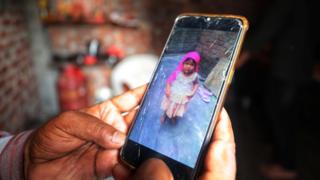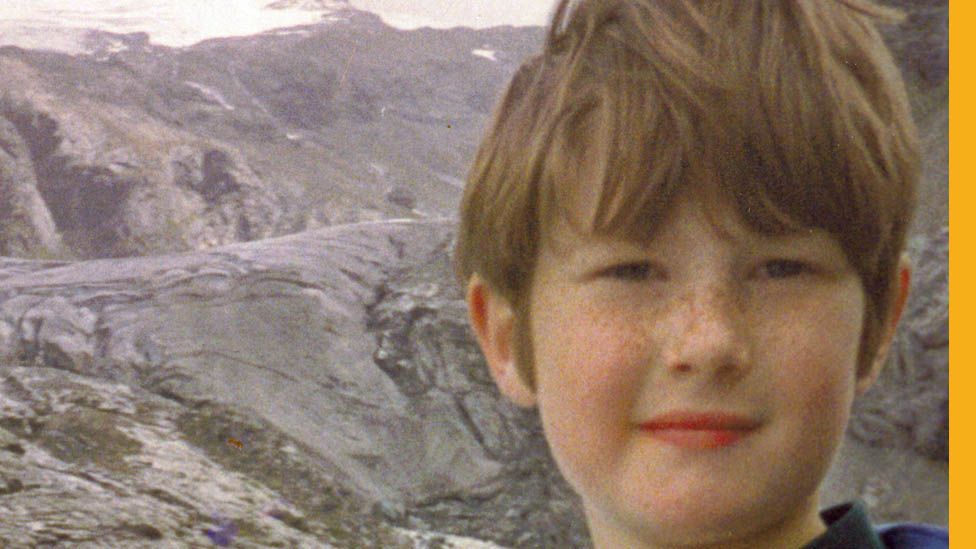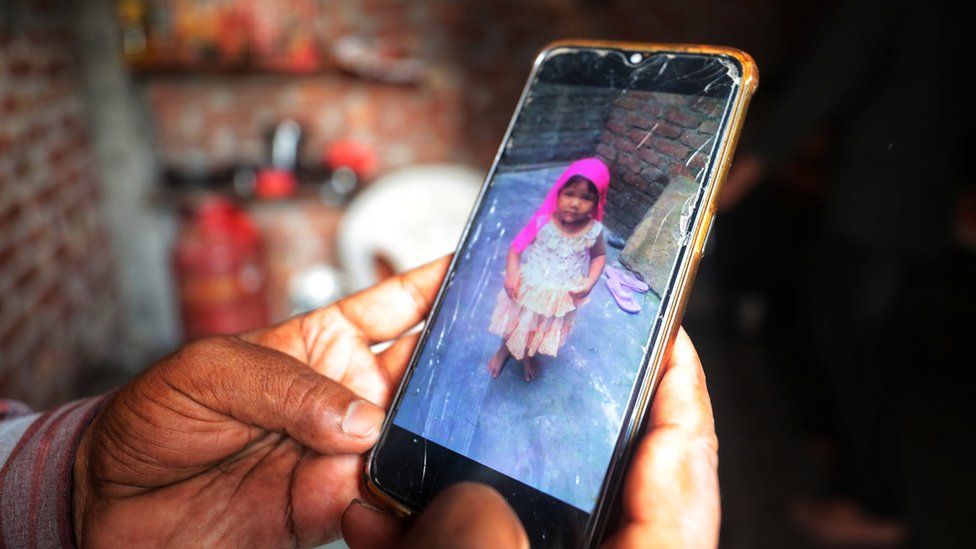
After the fatal shooting of a six-year-old girl in India last year, her parents made a choice few in the country do – donating her organs. Despite being expected to surpass China this year as the world’s most populous nation, India is 62nd in the global donation league table. The BBC travelled to Rome, where a campaign sparked three decades ago by another child’s gun death could show how progress can be made.
Rolly Prajapati was sleeping peacefully last April in the home she shared with her five brothers and sisters in suburban Delhi. In the next room, her parents were preparing dinner when they heard a loud bang and a scream.
When they went into the room, Rolly cried out for her parents before falling unconscious.
It was only when they saw blood trickling out of her right ear that they realised something awful had happened: a stray bullet had entered the family’s home in Noida and hit her.
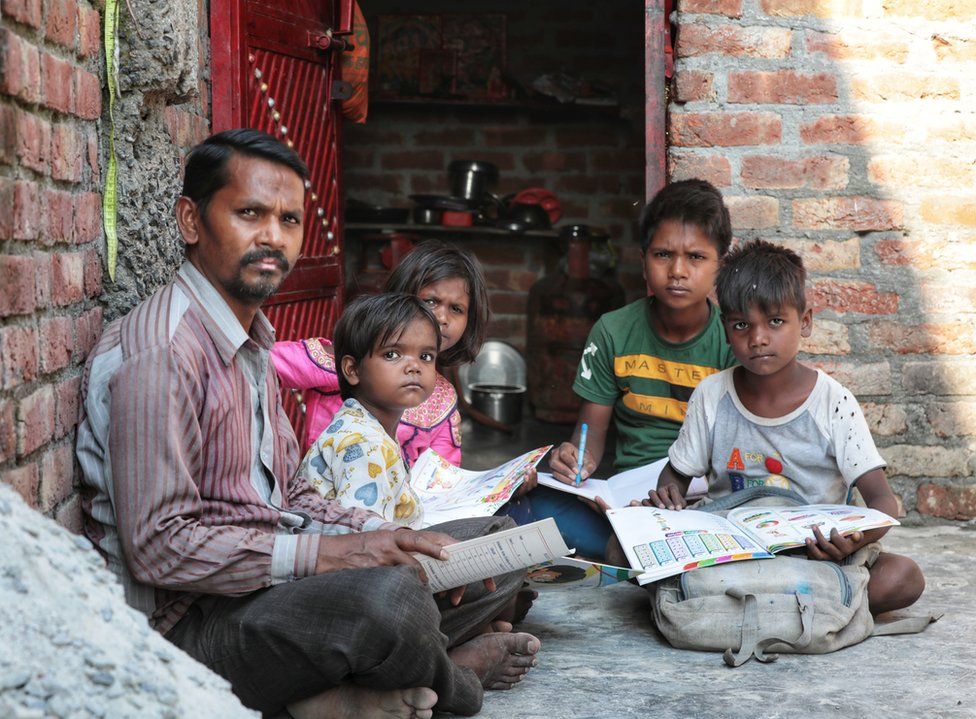
Rolly was rushed to hospital and, shortly after, declared brain dead. Police in Noida have told the BBC there is “no clear suspect” but they are continuing to investigate.
After days of agonising, her parents made a decision few in India have done before: to donate her organs. Rolly became the youngest donor at the All India Institute of Medical Sciences (AIIMS) in New Delhi.
Her father Harnarayan Prajapati explained that the decision to donate a child’s organs was not always straightforward.
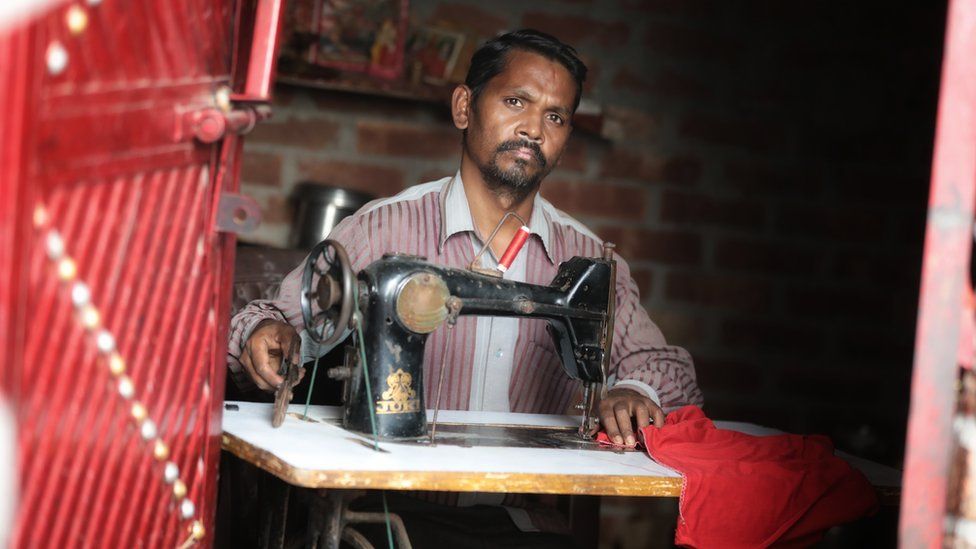
He said: “I didn’t know what to do. I kept thinking through the night. I told the [doctor] that we needed more time to think.
“Eventually we decided to go ahead, thinking ‘if my daughter’s organs could save someone’s life, then we should do it’.
“We think that our daughter is alive inside the young recipients – our daughter will live on this way.”
Both of Rolly’s kidneys were transplanted to Dev Upadhyaya, 14, whose parents told the BBC it was “a miracle to us” that he received the organs.
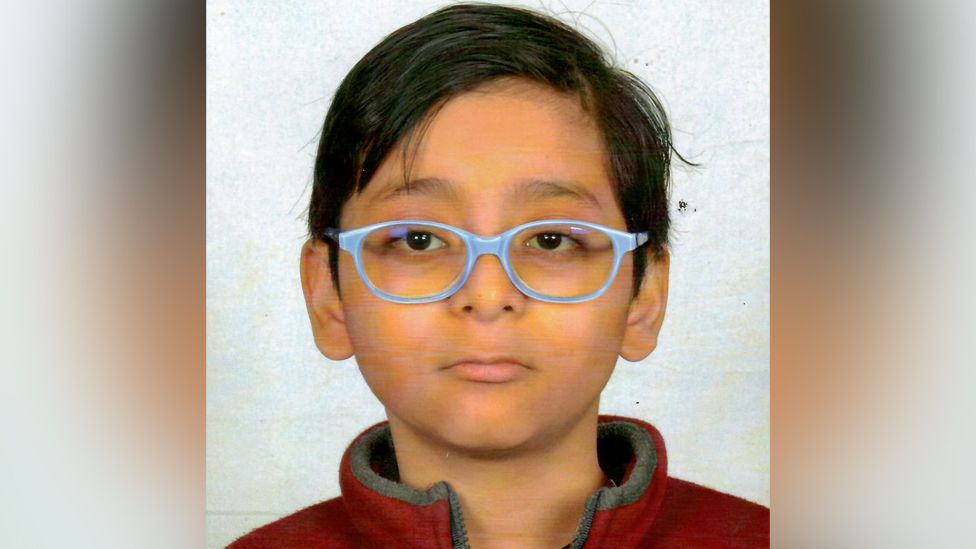
They had been waiting four years for a transplant and said their “life has been changed” because Rolly’s kidneys had “given new life” to Dev.
Rolly’s liver went to a six-year-old boy, her heart valves to children aged one and four, and her corneas helped restore sight to two adults aged 35 and 71.
Rolly’s death has parallels with the story of Nicholas Green.
The seven-year-old was on holiday in Italy with his family in September 1994 when the car he was travelling in was shot at in a suspected case of mistaken identity.
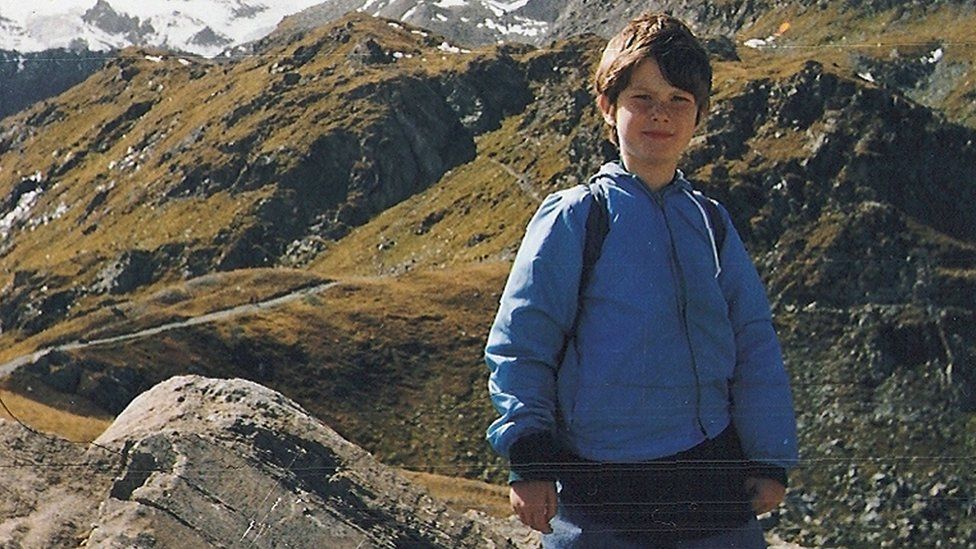
His parents, Maggie and Reg, made the decision to donate Nicholas’s organs. Reg has dedicated much of his life since to a campaign to encourage more organ donation.
In 1993, the year before Nicholas was shot, 6.2 people per million donated an organ in Italy – by 2006 the figure had reached 20 per million.
This was partly due to the country moving to an opt-out system in 1999, which makes all adults potential donors unless they say otherwise. But bringing the idea of the lifesaving potential of donating into the minds of ordinary people was perhaps the most important factor.
L’effetto Nicholas – the Nicholas effect – is clear to see. The hope is that a similar transformation will take place in India.
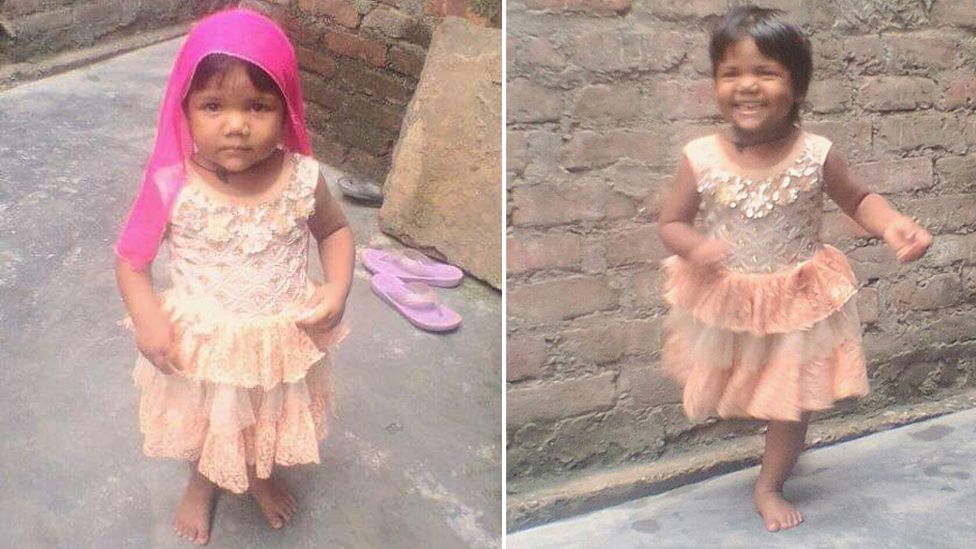
At the forefront of this is Dr Deepak Gupta, who has travelled to Rome to meet Reg and other experts from the organ donation community.
It was Dr Gupta who first spoke about the option of organ donation to Rolly’s parents – they, like many in the country, had never heard of it.
He used Nicholas’s example to show Mr Prajapati, who is illiterate, the possible impact of donating.
One person dies in India from a head injury every three minutes, according to the Lancet Neurology Commission, and so, as Dr Gupta says, there is “a lot of potential for donors”.
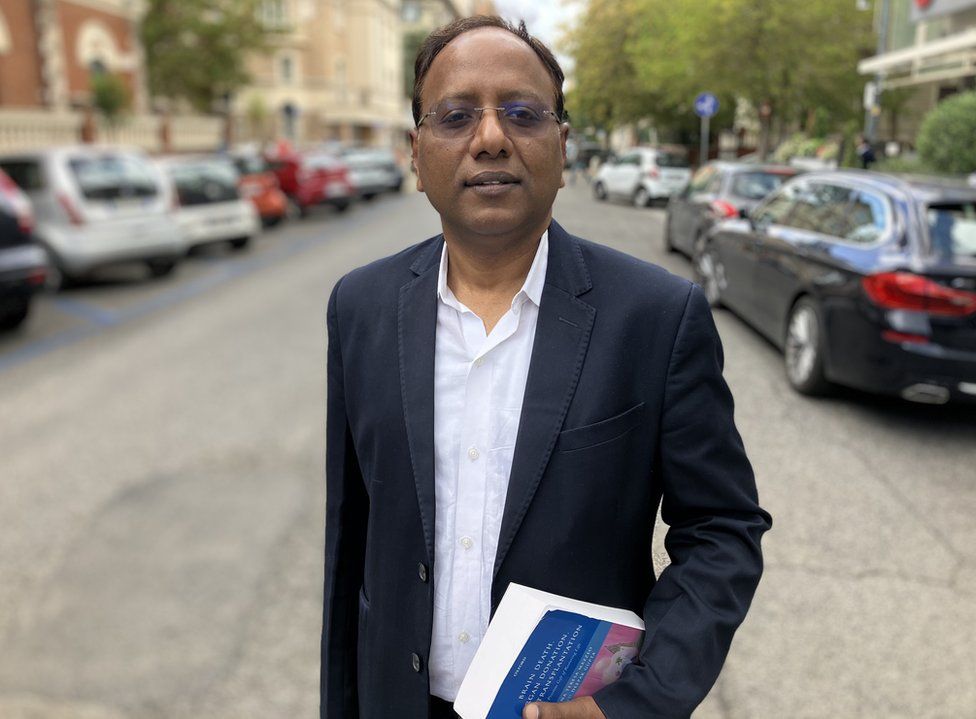
On average, between 700 and 800 people have donated organs each year since 2000 in India, which has more than 1.4 billion people.
Dr Gupta has conducted a survey which shows that factors such as religion and the attitudes of older family members can discourage donation.
But since Rolly’s death last April, there have been more organ donations at AIIMS in Delhi than in the previous five years combined.
India has seen 846 donations in 2022, more than ever before, according to figures from the National Organ and Tissue Transplant Organisation. Dr Gupta describes it as a “turning point”.
He said: “I’m pretty confident – I’m a neurosurgeon and so confidence lives in my veins and the blood – and I believe we all are born with the ability to change.
“I believe I am just a very small droplet in the ocean who is trying to bring a change for people.”
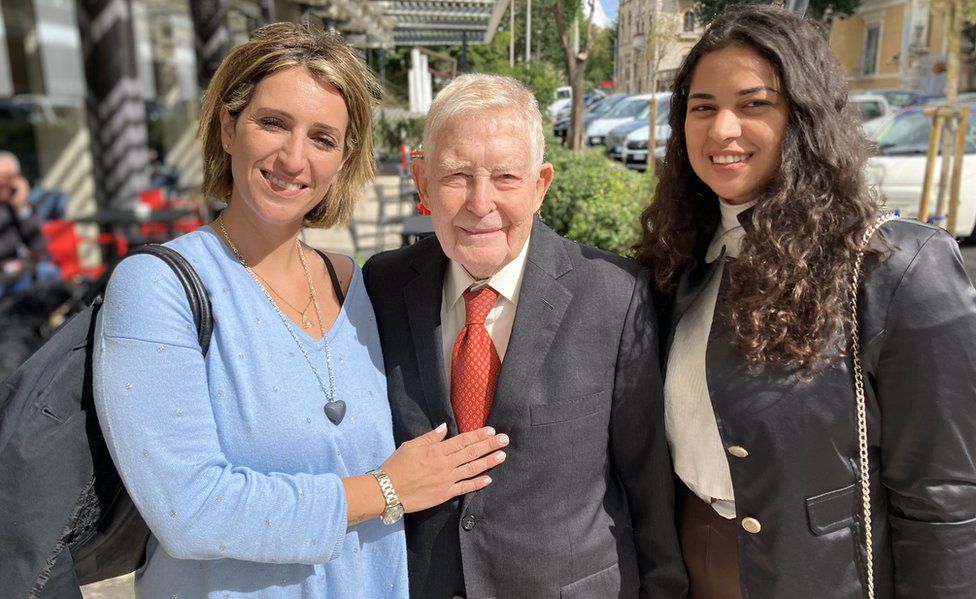
Each time Reg, 94, returns to Italy from his home in Los Angeles, he meets some of Nicholas’s recipients – on this trip, he met two women bound together by the transformative effect of donation.
Shana Parisella’s brother Davide was killed in a car crash in March 2013, and his heart was transplanted to Anna Iaquinta.
Nine years after the operation, Anna decided to search for her donor’s family and formed a strong bond with Shana, who she says is like a sister to her.
Shana, who has driven 140km from Fondi to Rome, said it was a dream to meet a “great man” who was “an example for everyone”.
Anna said: “It’s not easy for the person that receives the heart because you have a lot of thoughts and you kind of feel bad because on their side there’s a lot of pain. But on your side there’s a lot of joy, so it’s kind of like two different emotions.
“I’m really lucky that her family was so happy to meet me and, for them, it’s the biggest surprise and the biggest present.
“The biggest gift of their life was to meet me. And for me just to be OK and to be with them, it’s my way of saying thank you, but thank you is never enough.
“Nothing will ever be enough for having received life.”

Donor data
Spain has led the way in organ donation for many years due to the presence of full-time doctors trained as transplant co-ordinators in the country’s biggest hospitals.
“It’s not possible to perform the transplant if the population is not involved,” says Jose Luis Escalante, director of transplantation at Gregorio Marañon University Hospital in Madrid.
In 2021, for the first time in two decades, the US overtook Spain to become the global leader for successful organ donations, partly due to more than 100,000 people dying amid the opioid epidemic.

Italy is ninth globally, while the UK 13th. In May 2020, England switched to an opt-out system, which makes all adults automatic organ donors.
Nearly 300 people donated organs under the new approach, which came in two months after Scotland adopted automatic donation. Wales introduced the system in 2015.

After visiting Rome, Reg travelled to Messina where he met 24-year-old Nicholas, the son of Maria Pia Pedala who was in a coma when she received Nicholas’s liver 29 years ago.
He says he will only stop speaking about the issue when he dies. “I’m 94 years old so I was quite old when I started this,” he told the BBC.
“I think by now I would have hung up my tonsils but the thought that just by talking you can save lives has been a thought that motivates me every day.”
Additional reporting by Ankit Srinivas

